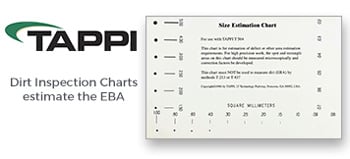- Industries
- Events
-
Publications & Standards
-
Standards, Useful Methods, & TIPs
-
Standards Subscription
About Standards, TIPs, & Useful Methods Purchase Standards Licenses
TAPPI Press Publications
-
-
-
-
Education
-
Get Involved
-
Join A Group
-
-
- Members
-
News
-
- DONATE





